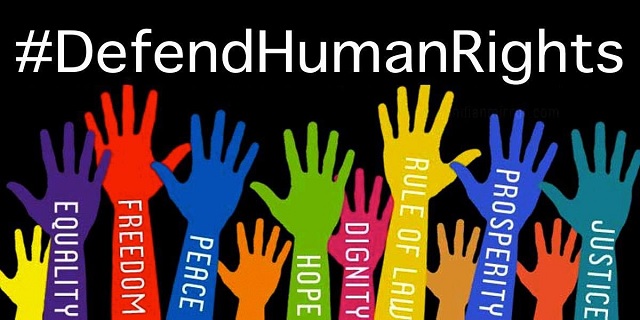
To de-weaponise human rights and restore global peace requires a shift of architecture from competition to cooperation
COMMENT | CRISPIN KAHERU | Speaking at the official opening of the Forum on Global Human Rights Governance at the Capital Hotel in Beijing, China on June 14, 2023, I made a presentation on “Global Security Initiative and Human Rights Guarantee”. I made the following intervention:
The Global Security Initiative (GSI) launched by China in 2022, is proposed as a new pathway to resolving conflict world over peacefully. It endorses the settlement of international disputes by peaceful means on the basis of the UN Charter on the right of the people to peace.
The initiative is centered around respect for each other’s sovereignty, security and development interests. These pillars are what we call the third-generation human rights, or ‘solidarity rights.’ The initiative therefore lays special emphasis on the protection of third-generation rights as a gateway to global stability.
For far too long, the seemingly socially acceptable trend has been to preach peace and practice war. But peace is not something that we can only pay lip-service to. Peace must be reflected in every dimension; economic, social and political environs.
The GSI is a first-hand practical example of leading efforts to de-weaponise human rights and restore global peace. The recent Saudi-Iran peace deal brokered within the framework of the GSI exemplifies a methodical global paradigm shift – from war methods to peaceful methods in fixing the international human rights order.
Quite uniquely, the GSI frames security around the concept of human security. Every human being has got equal value and worth but also, a human being is not just an individual. A human being is part of a system, part of a community, and has duties and responsibilities within that community. In turn, the community also has a responsibility towards the individual.
The GSI embodies the fundamental element that people around the world hold the right to choose ways to chart their course to development, the right to choose their type of governance as well as social and political systems that are aligned to their national conditions.
The GSI makes a strong and valid connection between peace and development. For instance, where there is inequality, there will inevitably be conflict. More specifically, economic inequality breeds conflict. Therefore, lasting peace can only be achieved from fighting against inequality. The crisis of international order that the world is experiencing today cannot be solved by weapons, but rather by a protracted process of sustainable development. A kind of development that not only generates economic growth but distributes its benefits equitably; a kind of development that regenerates the environment rather than destroying it; a kind that empowers people rather than marginalising them.
It is therefore high-time the world pushed for a balanced and contextual financing model that emphasizes support for productive rather than consumptive activities (and social spending) – to genuinely wipe out poverty. Global security can be realised when people are prosperous and happy. Prosperity in this case relates to people having access to better education, jobs, satisfactory pay, dependable social security, quality health services, good living conditions and a good environment.
Development should no longer be concerned with the mere proclamation of human rights, but with their fulfilment. The Right to Development, in other words, can only be fully realised once all human rights have been transformed from being words on paper into everyday realities for all peoples. Until rights are for all, they will just be the privileges of the elite.
The past one year of the Global Security Initiative has to an extent exposed inadequacies in the current normative framework of the international human rights system. It has on the other hand practically demonstrated that global peace is possible through peaceful means, through dialogue, consultation, discussion, and consensus. The GSI is steadily bridging the gap between the promise and the reality.
Here are a few thoughts to strengthen the GSI in the current global context:
The GSI should quickly albeit peacefully integrate with both the conventional and new spaces to rebalance the global political and security architecture from the conventional – competition to cooperation.
The GSI should pursue a more pragmatic approach; establishing think tanks, foundations and organisations as its operational vehicles. These institutions can promote mutual understanding, and foster cooperation through sharing knowledge about successful policy interventions, providing models for adaptation and adoption. This approach aligns well with the principles of ‘harmony in diversity’.
The peace agenda and the development agenda should be integrated. Without peace, there may be no development. But without development, peace is threatened.
******

Crispin Kaheru, is a Commissioner, Uganda Human Rights Commission (UHRC)
 The Independent Uganda: You get the Truth we Pay the Price
The Independent Uganda: You get the Truth we Pay the Price


